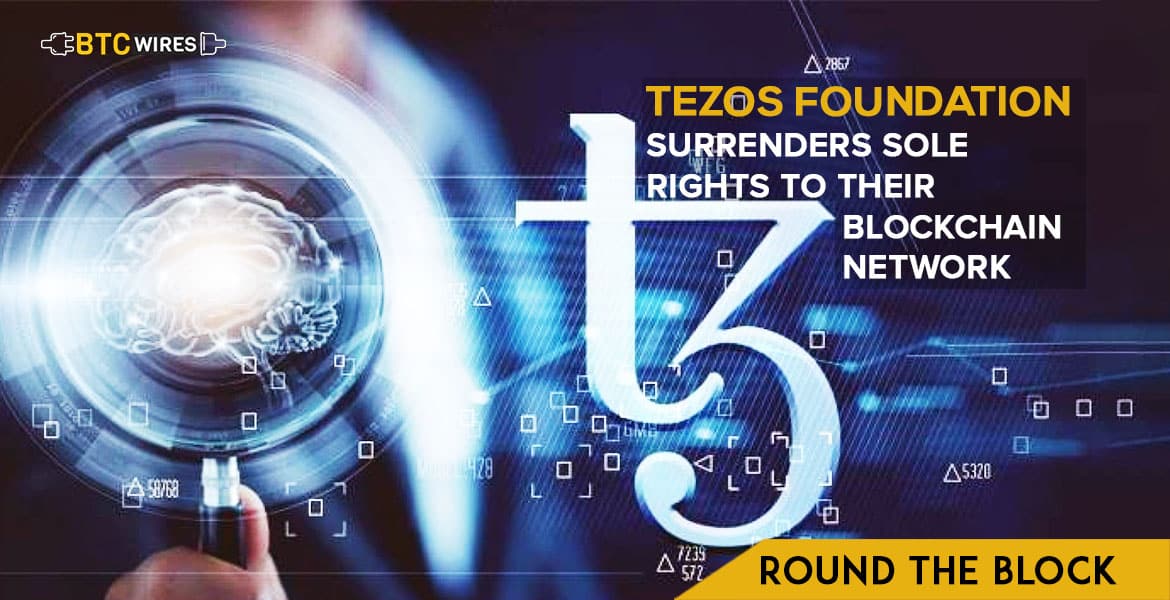The Tezos blockchain network is about to undergo a change

The Tezos blockchain network is about to undergo a change of leadership as a new “cycle” approaches. Launched just about 3 weeks back, it has a new cycle every three weeks and its seventh cycle (or sixth, if one begins counting at zero like many tech insiders) is coming soon, leading towards its initial goal of decentralisation.
Every time it’s time for a fresh cycle to start, the Tezos Foundation surrenders sole rights to their blockchain network and the first generation of members who hold tokens and startups must take over. Tezos has eight “bakers” who perform functions like that of miners. The bankers take charge of the change of foundation while the cycle changes. In the new cycle, the other members of the blockchain industry will be allowed to participate in the process of baking, leading to decentralisation.
In a manner similar to the EOS platform, the Tezos network provides for decision-making based on proof-of-stake that is delegated rather than the proof-of-work system followed in the Bitcoin and Ethereum systems. The network makes use of a randomisation in the voting system instead of going through the hash rates for each new block of
cryptocurrency mined. Known as validating, this process requires the validators to be duly elected. Under this system, bakers who lack adequate funds to be a part of this process can give their tokens to other services that bake on their behalf. This process sees a payment of subsidies with deductions in bakers’ fees.
The professionals who had been denied an opportunity to participate in the last few cycles will be able to participate this time. A Tezos spreadsheet accessed by CoinDesk has indicated that Tezos is attempting to generate 80% of the blocks available but that quantity will also fall gradually as more bakers become a part of this.
The bakers of the foundation are extremely excited at the prospect of being able to bag large fees from this process and their validation services. As the founder of Tezzigator, a delegation platform, Bo Byrd remarked everyone has been eagerly waiting to sieze the golden opportunity.
The token holders are just as excited as the rest and about 96% of the activated tokens are going to be privy to the baking and delegation process. The token holders are not obligated to maintain the tokens for any stipulated duration. Therefore the risk to delegate is minimal to non-existent and the users can take off-chain decisions with little consequences as there is no smart contract to safeguard the bakers or their tokens. The selected delegation service needs to be reliable so that holders don’t lose their payments or are not required to accept increments in fees.
Whatever delegation service is selected will need to be trustworthy, ensuring that the holders will receive the payment they deserve and will not be subjected to fee increases without adequate notice.
As of now, it remains imperative to ensure transparency and security of information.
